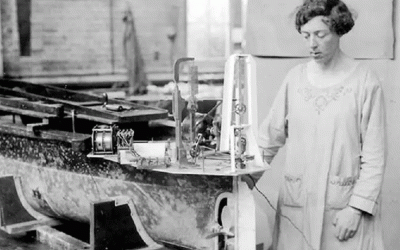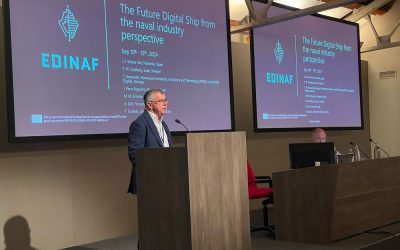Ship & Boat international: eNews October 2016
Oil and water don’t mix – but both are valid hydraulic fluids for Piening Propeller’s low-maintenance PCP concept.
Germany-based manufacturer Piening Propeller has secured a DNV GL design approval certificate for its Piening Controllable Propeller (PCP) 5-650 model, which is being promoted as the first propeller of its kind to be able to utilise water as a hydraulic fluid.
This award follows “2 million pitch setting cycles, conducted under permanent full load”, to prove the propeller type’s high wear resistance, Piening Propeller CEO and chairman Mathias Pein tells Ship & Boat International.
The PCP range grants the customer the option to choose between oil and water, meaning that, effectively, users could make significant savings by opting for the latter. As well as being far cheaper than oil, supplies are much easier to source; Pein comments: “In some global ports, it can take as long as three days for propeller oil to be delivered to the ship.” He adds: “If seawater happens to enter the propeller, it will pose a much bigger problem to an oil-based system, as opposed to a water-based system.” Similarly, in terms of safety, an accidental leak of water is of far less environmental concern – and is infinitely less likely to result in legal action than is an incident of oil pollution.
The PCP range incorporates either 4-or 5-bladed arrangements, making it suited to vessels with high horsepower requirements, such as naval craft, research ships and megayachts, for example. The blades have been designed for simplified assembly/disassembly and can be mounted from the inside or outside of the hub.
To further save time, Piening has produced identical components for left- and right-turning propellers, thereby reducing the number of different parts that the user has to work with and remember. For added protection, the hub incorporates corrosion-proof materials, and the dynamically loaded areas have been bolstered with composite materials. Pein says: “You don’t have to disassemble or dismantle the whole hub –you can just open it up and exchange the worn parts.”
Piening is now set to conduct further sea trials of the PCP 5-650 in cooperation with Danish dredger operation Rohde Nielsen. The PCP series will then be rolled out as a bespoke solution, spanning diameters ranging from 1.5m to 6m and power ratings from 500kW to 10,000kW.






